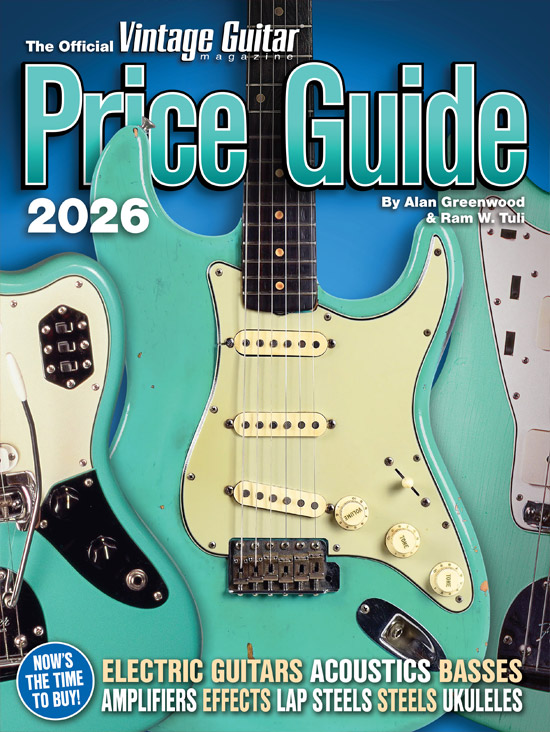
Blues guitarist Khalif Wailin’ Walter now makes his home in Essen, Germany, but the sound that emanates from his fretboard is pure Chicago. Born in the Windy City, Walter keeps the blues alive in the old country while pushing the genre forward. On Phoenix Risin’, the blues veteran pays homage to earlier blues styles of Texas and Chicago and does it with originality and soul. Also noteworthy is that he produced, recorded, mixed, and played most of the instruments.
Phoenix Risin’ feels like an homage to the blues of the 1950s and ’60s.
I was really into Albert Collins and his band’s sound. But I’m an independent artist, so everything is up to me. Nowadays, you can’t just be a guitar player. You have to have other skills, so I studied engineering and recorded everything myself including guitars, vocals, and bass. I love this stuff. I reached out to a few producers, and interestingly enough, they responded and invited me to sit with them and learn. A few of these guys had worked with people like David Bowie and Slash, and they were more than willing to answer my questions. It was a real education. I love working with mics and plug-ins, mixing, and trying different guitar, amp, and pedal combinations. Some of the songs were older, and some I wrote specifically for Phoenix Risin’.
In what order did you record instruments?
When my drummer, Barry Wintergarden, got off tour, we went into the studio. It was just him on drums and me on bass. Some of the basic tracks also had drums and guitar with me singing. That was just a scratch vocal so Barry could hear the structure. I ended up using only one of the scratch vocals. We laid it down and fixed things here and there, then I brought in a horn section. I used Martin “Tinez” van Toor and Tommy Schneller for the sax parts, and Chris Rannenberg and Paul Jobson play piano and organ. It was very improvisational. I would hear lines, hum them, and they’d play what I sang. I love horns on blues records, and I love big-band music.
You lean into the older blues styles but with a more-modern guitar tone.
I used my Vox AC30 and a few different plug-ins like the Neural DSP Mesa Boogie Mark IIC, Nembrini Audio Faceman 2 head, and the Nembrini Overdrive Special. I found that plug-ins sound best when you stack them. My favorite – the one I used most – was the Mesa Boogie.
It’s a vibrant tone, like using Santana’s rig on a Texas shuffle from the ’50s.
Yeah. I also used some Fender tweed plug-ins, my Vox, and a Crazy Tube Circuits Unobtanium pedal. One side sounds like a Dumble, the other like a Klon Centaur. I sometimes stack them live, but I only used one side on the album.
How about guitars?
I like to modify my guitars. I used different Strats and Teles where I upgraded the pickups – I put humbuckers in a Tele, so of course it has an entirely different sound. I love Lindy Fralin pickups, so I put a set of his single-coils in my Strat.
The guitar tone on “The Streets” is very intense.
That was my tribute to one of my favorite guitar players, Carl Weathersby. I sent that track to him and said, “This is me trying to do my best imitation of you.” He replied in an e-mail, “Uh-huh.” That was all he wrote (laughs).
What’s the story behind “Chi-Town Soundcheck?”
I wrote that a while ago. It was supposed to be a jam between me, Toronzo Cannon, and Mike Wheeler. I wrote a head for it and we were all going to take solos in the middle. When I contacted Toronzo’s label, they told me it wasn’t going to happen. When I spoke to Toronzo, he laughed and said he knew nothing about it but would have loved to play on it. So, I put it out myself.
What’s your advice for guitar players who want to record their own music?
Have a plan and know what you want to achieve before you begin the work. Also, don’t be afraid to ask for help. You’d be surprised at the number of producers who would gladly answer questions. Guitar players can be stingy with knowledge or giving up secrets. Not so with producers and engineers.
What’s next for you?
I want to come back to the States and perform, but until then I’ll be touring Europe, including Austria. I’m already working on a new album that has a Tedeschi Trucks vibe. I’m mixing it now.
This article originally appeared in VG’s December 2024 issue. All copyrights are by the author and Vintage Guitar magazine. Unauthorized replication or use is strictly prohibited.



